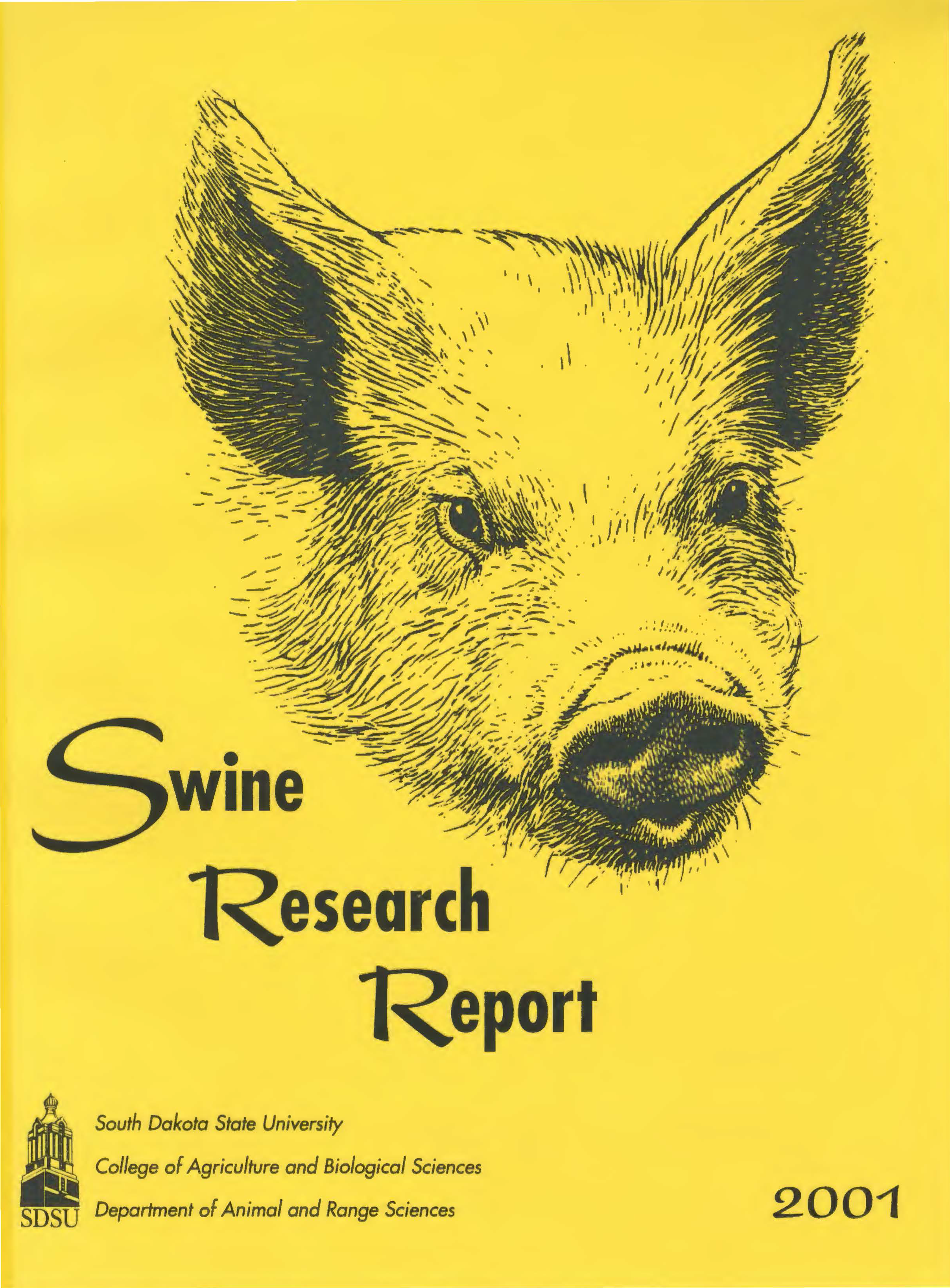Document Type
Article
2001-21
Publication Date
2002
Summary
Porcine reproductive and respiratory syndrome (PRRS) is recognized as the most economically devastating disease of swine throughout the world. Nucleotide sequencing and serological studies have deomnstrated sustantial antigenic variation amoung PRRS virus (PRRSV) isolates (Murtaugh, et al., 1995; Nelson, et al., 1993, 1996). Recently, European-like PRRSV isolates have been identified in the US (Rossow, et al. 2000) and other new, highly virulent PRRSV isolates have appeared and affect sows at all stages of gestation causing mortality of adult pigs as well as young pigs (Epperson et al., 1997). Therefore, it is even more important to control the spread of these new strains. Clinical signs vary between herds, indicating that viruses may differ in pathogenicity. Furthermore, effective use of vaccines and management approaches to control PRRS has not always been successful.
Number of Pages
3
Format
application/pdf
Language
en
Publisher
South Dakota State University
Rights
Copyright © 2001
Recommended Citation
Nelson, E.A.; Jones, H.A.; Yang, L.; and Platt, K.B., "Field Application of a Monoclonal Antibody Panel to Differentiate
Porcine Reproductive and Respiratory Syndrome Virus (PRRSV)
Isolates" (2002). South Dakota Swine Research Report, 2001. 22.
https://openprairie.sdstate.edu/sd_swinereport_2001/22

